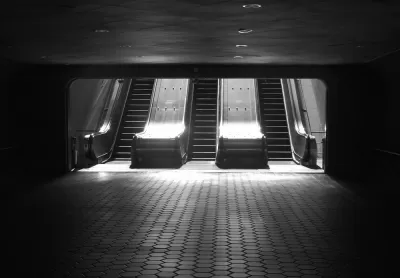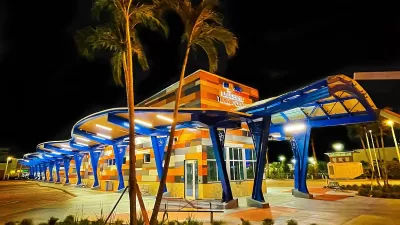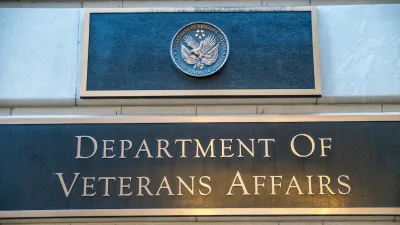As more people experiencing homelessness seek shelter in transit facilities, transit agencies are looking for ways to offer assistance and reduce interactions with law enforcement.

"America’s transit systems — public spaces with long operating hours and enclosed spaces offering more safety than the streets — have long been de facto shelters for the nation’s homeless population," write Michael Gold and Erin Woo. "For much of that time, transit agencies have turned to the police to address complaints by penalizing and ejecting those taking refuge on trains, subways and buses."
As Gold and Woo write, "The urgency for new solutions has deepened during the coronavirus pandemic, which has worsened homelessness and left transit systems struggling to win back riders who fled."
In New York City, "[Mayor] Adams’s plan deploys police officers and mental-health workers underground to remove people who shelter on the subway. He has said the focus is on connecting people to housing, health services and counseling, not on aggressive policing." But "Many advocates are skeptical, arguing that Mr. Adams’s plan relies heavily on police intervention and enforcement of the subway’s code of conduct, which has rules targeting homeless people."
The article outlines efforts by transit agencies in San Francisco, Philadelphia, and Los Angeles to develop outreach programs and minimize interaction between law enforcement and unhoused people. "In 2018, [the Southeastern Pennsylvania Transportation Authority] — which before the pandemic averaged about a million trips per day across buses, subways, trolleys and regional rail — turned over an 11,000-square-foot space in a concourse below the station to Project HOME, a nonprofit that helps homeless people." To assist those sheltering in SEPTA facilities, "The group converted the space to a drop-in center that offers temporary shelter, medical services, access to restrooms and laundry and help finding housing." The agency is considering adding similar facilities to other stations.
The Philadelphia program is not without its challenges. "Workers also still struggle to find acceptable shelter for many who need it. And fewer than 50 percent of those contacted by outreach workers agree to accept services, [SEPTA Police Chief Thomas J. Nestel III] said." Advocates hope cities will invest more in human-centered approaches that prioritize outreach and supportive services.
FULL STORY: What Other Cities Can Teach New York About Homelessness on Transit

Alabama: Trump Terminates Settlements for Black Communities Harmed By Raw Sewage
Trump deemed the landmark civil rights agreement “illegal DEI and environmental justice policy.”

Study: Maui’s Plan to Convert Vacation Rentals to Long-Term Housing Could Cause Nearly $1 Billion Economic Loss
The plan would reduce visitor accommodation by 25% resulting in 1,900 jobs lost.

Planetizen Federal Action Tracker
A weekly monitor of how Trump’s orders and actions are impacting planners and planning in America.

Wind Energy on the Rise Despite Federal Policy Reversal
The Trump administration is revoking federal support for renewable energy, but demand for new projects continues unabated.

Passengers Flock to Caltrain After Electrification
The new electric trains are running faster and more reliably, leading to strong ridership growth on the Bay Area rail system.

Texas Churches Rally Behind ‘Yes in God’s Back Yard’ Legislation
Religious leaders want the state to reduce zoning regulations to streamline leasing church-owned land to housing developers.
Urban Design for Planners 1: Software Tools
This six-course series explores essential urban design concepts using open source software and equips planners with the tools they need to participate fully in the urban design process.
Planning for Universal Design
Learn the tools for implementing Universal Design in planning regulations.
Caltrans
Smith Gee Studio
Institute for Housing and Urban Development Studies (IHS)
City of Grandview
Harvard GSD Executive Education
Toledo-Lucas County Plan Commissions
Salt Lake City
NYU Wagner Graduate School of Public Service





























